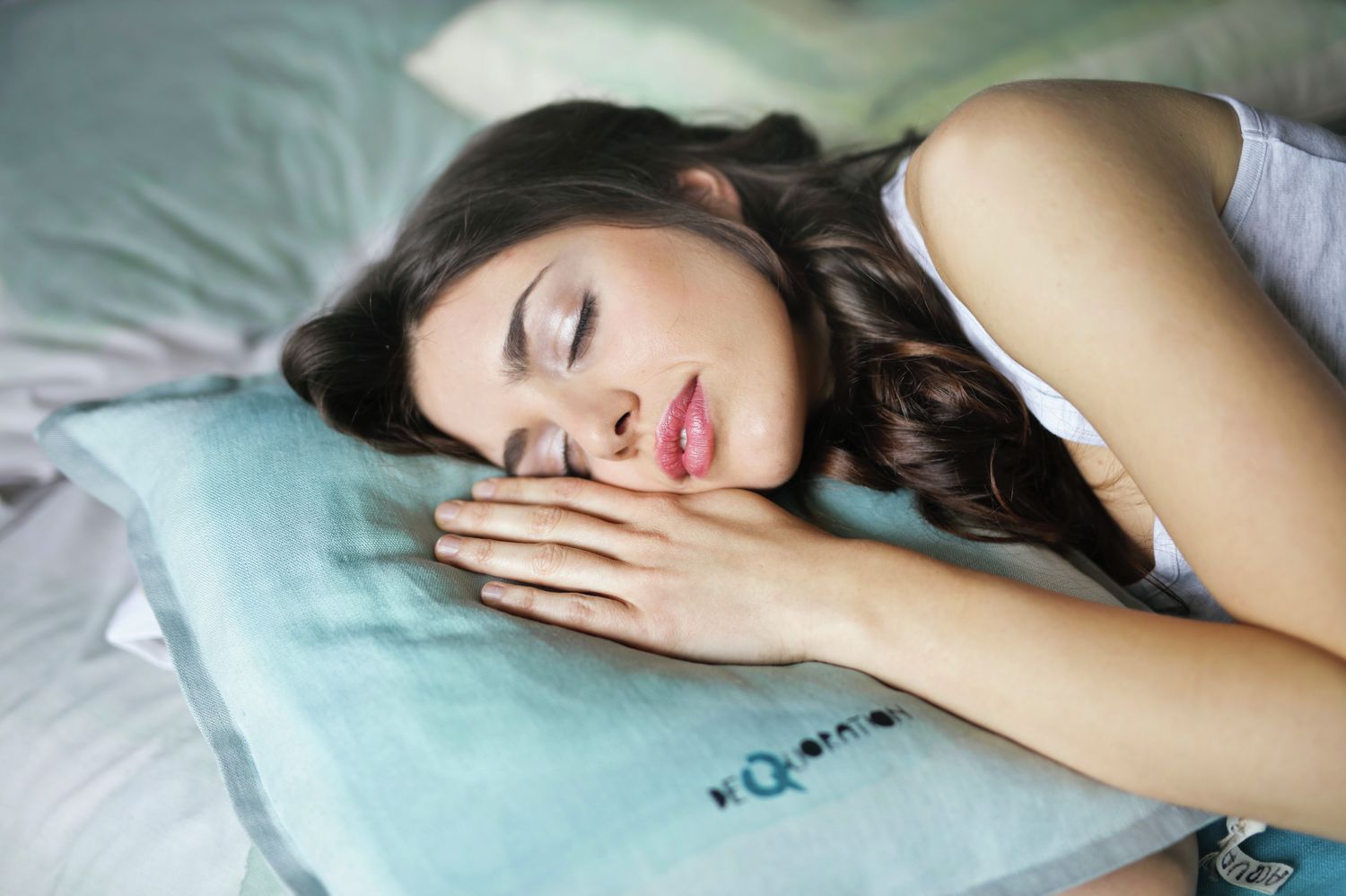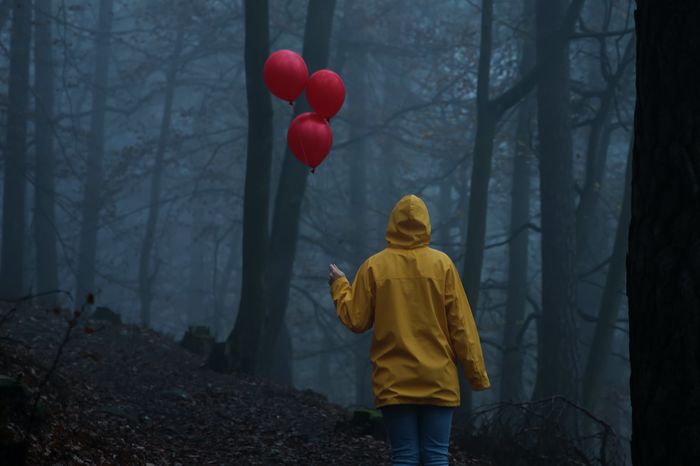If you’re a student, chances are you aren’t giving your body the sleep it deserves… and you’re damn well paying the price for it.
Hold on! Because I’ve put together the ultimate, science-based guide on exactly how to get the deep, lustrous shut-eye you know you deserve - so settle down, get comfortable, and prepare yourself for some life-changing information.
The 8 hours fallacy
How often have you been told that you just need at least 8 hours of sleep each night, and you're golden? Well, it’s a little more complicated than that.
First of all, 8 hours is too high of a figure. Multiple large-scale studies all seem to agree that about 7 hours a night is optimal for maximising cognition, mental health, and lifespan - with any more or less being detrimental. On top of that, these studies all use a measure called ‘sleep period’ – which describes the duration between sleep onset and offset, rather than the actual time spent in a sleep state. So, in reality, not all of those 7 hours are spent in the ‘sleep state’, because everyone naturally drifts in and out of sleep throughout the course of a night. To measure how much sleep you’re actually getting, I recommend a free app called Sleep Cycle, but you can also use wearable devices like Fitbits or Apple Watches if you have one.
Whilst younger people do require more sleep, this tends to stabilise at around 20 years old, so these suggestions (based on middle-age skewed data) should fit the average university student pretty well. However, sleep needs do still vary a lot between individuals (often just based on genetics), so don’t stress too much about trying to hit a specific number. Find what works best for you – the next part is much more important.
Quality vs quantity
“Just get 8 hours a night” is also terrible advice because it completely disregards the importance of sleep quality.
This can be hard to define, but you can think of it as how effective your sleep is at actually fulfilling its function. If you often find that, after a supposed good night's sleep, you still feel tired and groggy the next day, it’s likely your sleep is of poor quality.
I like to approach sleep in a way that maximises my ‘bang-for-buck’ - by making my sleep as efficient as possible, I don’t need to spend as long in bed, and I will feel much better in the hours that I am awake.
So, the rest of this article will be dedicated to giving you the most important protocols to follow, in order to achieve the highest quality sleep possible.
Get morning sunlight & wake up at the same time every day (most important)
What makes us feel alert and awake in the morning is a pulse of cortisol and adrenaline being released into our system. This pulse is important in timing the release of melatonin at night, a hormone that makes us feel sleepy; therefore, ensuring this pulse occurs at the correct time each day is extremely important to maintaining a healthy circadian-rhythm.
We want this hormonal release to occur within 60 minutes of waking up - to ensure we are alert vs sleepy in the correct hours of the day - and by far the most powerful way to do this is to spend 5–30 minutes outdoors (depending how bright it is), getting sunlight directly into your eyes (i.e. no sunglasses, not through a window) as soon as possible after waking.
Avoid caffeine 10–12 hours before bedtime
Adenosine is another hormone that produces a ‘thirst’ for sleep, and builds up in our bodies the longer we’re awake. Caffeine reduces tiredness by binding to adenosine’s receptors, preventing the hormone from having its effect.
In order to ensure this doesn’t interfere with your sleep, aim to avoid caffeine for at least 10 hours before sleep onset. Even if it doesn’t make it harder for you to fall asleep, caffeine will still significantly disrupt your sleep quality. Similarly, refrain from consuming caffeine for the first 90 minutes of waking - your adenosine system won’t be active yet, so drinking a coffee at this time will just make you crash later on.
Avoid alcohol and cannabis before sleep
Alcohol and cannabis are commonly misconstrued as sleep aids because they help you lose consciousness quicker. However, they do not help you reach a state of sleep any faster, and in fact, will significantly reduce its quality. For example, just one glass of wine in the evening has been found to fragment REM (rapid eye movement) sleep into pieces, and reduce the amount of growth hormone released by around 50%!
Avoid bright lights in the evening (crucial)
Viewing bright light (of any colour) around 10pm to 4am will disrupt your circadian clock, and drastically reduce the amount of dopamine you produce in the following day – a neuromodulator essential for motivation and focus. Avoid this by dimming lights as much as possible around an hour before going to sleep, and not looking at any screens (“Blue light filters” won’t prevent this). I know most people disregard this, but also, most people are probably tired all of the time – is that extra hour of mindless content consumption really worth it?
Make sure you have a good sleeping environment
Our internal body temperature needs to lower by about 1 degree Celsius to initiate and maintain sleep. Keeping your bedroom cool enough during the night (15–19 degrees Celsius) helps this, because, whilst asleep, we subconsciously regulate our body temperature by sticking our hands and feet out from the covers to cool down, and pulling them back in to warm up.
Additionally, ensure that your room is as dark as possible, and wear earplugs if you live in a noisy environment.
Wrapping it up
To summarise, sleep is extremely important to your wellbeing and mental performance. If you regularly feel tired and unmotivated – your sleep probably sucks. Here’s my summary of steps to good sleep (with the obvious disclaimer that I am not personally a sleep scientist).
The average optimal amount of sleep to aim for is 7 hours a night, but find what works best for you. You can measure whether or not you achieve this with apps or wearable devices.
To maintain a healthy circadian rhythm, and consistently get high quality sleep, make sure that you: wake up at the same time every day; get 5–30 minutes of morning sunlight outdoors after you wake up; be cautious with caffeine, alcohol, and cannabis; avoid bright lights in the evening at all costs; and make sure your room is cool, dark, and quiet.
These are just the absolute essential habits to follow; if you’d like to learn more ways you can improve your sleep, or even delve a little deeper into the science, then this video might help. But if it's past 10pm already, perhaps wait until tomorrow, and get a good night's sleep. Wouldn't that be nice.


